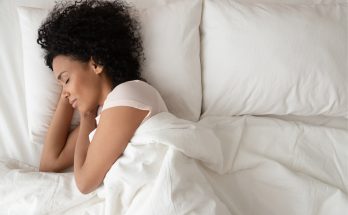When the quarantine began in 2020, I found myself, like everyone else, working at home and unable to leave the house for simple pleasures. Gone were the days of leaving the office at 5 p.m. and braving a commute home before cooking for the family, settling onto my couch for some mindless TV around 8 and then crashing into bed around 10.
The “new normal” was working in my living room and then, only when the teens emerged from their rooms claiming starvation, made dinner and returned to the living room to stream some TV. What broke up my days from my evenings? Wine. After 5 o’clock, I could – and did – pour myself a glass.
I was not alone. My friends and I, during Zoom book clubs, trivia nights and game nights, let the wine flow freely. We were all drinking more (even suggesting we buy shares in wine stock). Yet, every night, I was restless. Tossing and turning, constantly waking, groggy all day. Was it the boredom of being stuck at home? Would an extra glass or two at night help? I certainly tried but that wasn’t the solution. It was the problem.
Alcohol and sleep
Alcohol is known to be a sedative and a depressant, which means a glass or two could lead to drowsiness. However, according to the Sleep Foundation, excess consumption of alcohol can actually have a reverse effect and cause poor sleep quality, less sleep and insomnia.
What’s the switch? The cycles of sleep – including REM (rapid eye movement) – each switch throughout the night, lasting 90 to 120 minutes. There are four stages of sleep and a restful night will see four to five cycles in an eight-hour sleep.
But alcohol as a sedative moves you through your stages of sleep too quickly and sets off an imbalance between your non-REM and REM cycles resulting in shorter sleep and more waking moments. A study out of Brown University finds this begins after just three days of continued nightly drinking.
For those who reach the point of insomnia, a vicious cycle begins: A lack of sleep at night leads to daytime drowsiness that often leads people to turn to alcohol as a sedative in hopes of getting some sleep.
Alcohol by the numbers: How much is too much?
Moderate drinking is defined by the National Institute on Alcohol Abuse and Alcoholism as one drink per day while heavy drinking is defined by eight or more drinks per week. This means having two glasses of your beverage of choice every night equates to 10 drinks per week and constitutes as heavy drinking.
The National Institute of Health features studies showing what those numbers do to your nightly sleep. Those who have less than one glass of alcohol per day will have a drop in sleep quality by up to 9.3% as opposed to those who do not drink at all. At one drink per day, sleep quality drops 24% and for heavy drinkers by nearly 40%.
A solution
While this evidence may make you feel you cannot have anything to drink before bed, that is not the case. The Sleep Foundation’s studies have found consuming alcohol more than four hours before you head to bed will not affect your evening’s slumber. So start your book club or game night earlier if you want to have a drink and get your zzzzzs.



